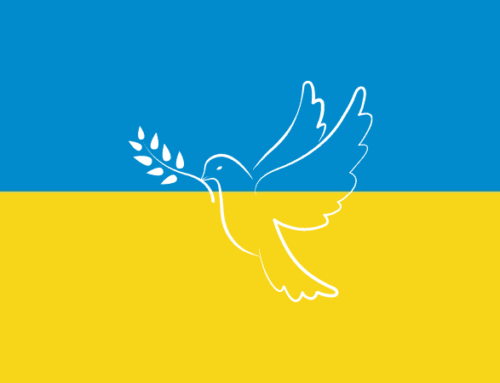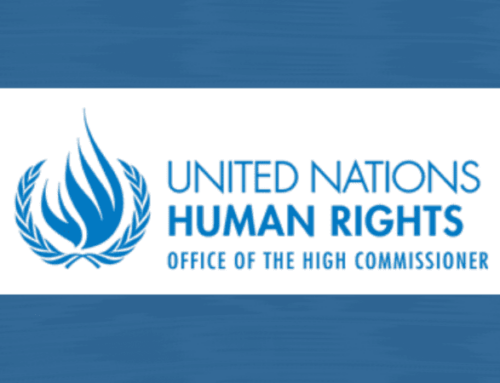Monitoring the case of Irina Sukhanova (11.11.2020 and 11.25.2020)

On November 11 and 25, 2020, preparatory hearings were held in the Shevchenko District Court of Zaporozhye in the resonant case of Sukhanova I., the owner of an illegal kindergarten in an apartment, accused of premeditated murder of a little child (paragraph 2, part 2, article 115 of the Criminal Code of Ukraine). For the murder of a one-year-old girl, the teacher faces life imprisonment. The woman does not consider herself guilty, but CCTV cameras recorded the woman’s violence against the girl. In order not to hear the crying of the child, the teacher put a pillow over her face.
The court sessions were held with the participation of the prosecutor, the accused, her defense lawyers, the victims and their representative. The hearings were held with the participation of two judges: Dmitriuk O., Schastlivaya E.
To prevent the spread of respiratory disease COVID-19 caused by the SARS-Co V-2 coronavirus, by order of the chairman of the Shevchenko District Court of Zaporozhye No. 5 dated September 25, 2020, the court introduced restrictive preventive and anti-epidemic measures for the quarantine period, including restricting access in court sessions of persons who are not participants in court sessions.
Therefore, the monitoring was carried out using an online broadcast of the court session on the website of the Judicial Power of Ukraine.
The course of the trial on 11.11.2020.
In this court session, the main composition of the jury was determined. During the hearing, the jury was asked questions about circumstances that would make it impossible to consider the case or interfere with its consideration.
At the hearing, the prosecutor filed a motion to disqualify the jury Ryabchuk N., since she is the wife of juror Ryabchuk V., who is also included in the jury in this criminal proceeding.
The representative of the victims, whose position was supported by the victims, did not object to the satisfaction of the prosecutor’s motion. At the same time, he announced the disqualification of the juror Ryabchuk V. on the basis of paragraph 4 of part 1 of article 75 of the Criminal Procedure Code of Ukraine (the presence of circumstances that raise doubts about his impartiality) in order to prevent violations – paragraph 4 of part 2 of article 386 of the Criminal Procedure Code of Ukraine (the jury is obliged not to communicate without the permission of the presiding judge with persons who are not part of the court regarding the essence of the criminal proceedings and the procedural actions carried out during it).
The defense lawyers and the accused left this request to the discretion of the court.
Defense attorney Budilko P. announced the recusation of the juror Bulygina T., since the latter is a practicing psychologist and this circumstance, if there are requests for the appointment of appropriate examinations in this criminal proceeding, may affect the adoption of procedural decisions.
The accused asked to resolve the issue of disqualification of the jury Bulygina T. at the discretion of the court.
The prosecutor, the representative of the victims and the victims objected to the disqualification of the jury Bulygina T., referring to the lack of motivation and the absence of grounds determined by Article 75 of the Criminal Procedure Code of Ukraine.
The jury, who was challenged, explained that they have no relationship with the participants in the proceeding and are ready to fulfill their duties. The jurors Ryabchuk V. and Ryabchuk N. confirmed that they are spouses.
Having heard the participants in the trial, the court considered that the petition of the prosecutor and the representative of the victims should be satisfied. In the Court’s opinion, this follows from the practice of the European Court of Human Rights. In accordance with Article 9 of the Criminal Procedure Code of Ukraine, the most important issue is the administration of justice by an independent and impartial court and the confidence that the courts must instill in the public in a democratic society. When providing an assessment of the impartiality of the court, it is necessary to distinguish between subjective and objective aspects.
In substantiating its position, the national court referred to the decisions of the ECtHR: “Gausschildt v. Denmark”, “P’ersak v. Belgium”, “Fey v. Austria”, “Bochan v. Ukraine”, where it is stated that the existence of impartiality for the purposes specified in paragraph 1 of article 6 of the Convention should be determined on the basis of a subjective criterion, in the context of which the personal convictions and behavior of a particular judge should be taken into account, and means the need to establish whether the judge in a particular case had any personal interest or bias, and on the basis of an objective criterion in the context of which it is necessary to establish whether the court and, among other aspects, its composition, provided sufficient safeguards to rule out any reasonable doubt about its impartiality.
At the same time, the ECtHR warns that only the doubts of a “sensible observer” that the court is independent and impartial may have a certain value in understanding the provision of citizens’ right to a fair trial (“Feranteli and Santangelo v. Italy”, “Housechildt v. Denmark”, ” Wetstein v. Switzerland “).
The court took into account that the jurors Ryabchuk N. and Ryabchuk V. are spouses and, by virtue of the provisions of part 2 of article 75 of the Criminal Procedure Code of Ukraine, they cannot be together in the composition of the court that carries out the proceedings, and in case of satisfaction of the challenge to one of them, may give an outside observer an impression of the jury’s bias in the consideration of this case, which is the basis for satisfying the requests of the prosecutor and the representative of the victims.
Considering the statement of defense attorney Budilko P. about the challenge of the jury Bulygina T., the court proceeded from the following: in order to challenge the jury, it is necessary to substantiate the existence of circumstances that objectively may indicate a possible bias. The circumstances that were used as the basis for the defense lawyer’s challenge must be proven. The challenge must be motivated, indicating the relevant arguments, evidence confirming the existence of grounds for the challenge. If it’s not motivated, this is the basis for refusing to satisfy it.
The court considered that the defense lawyer’s argument that the juror Bulygina T. is a practicing psychologist, which may affect procedural decisions, cannot be considered as motivated. The lawyer’s application was not satisfied by the court.
The course of the trial on November 25, 2020.
In accordance with Article 388 of the Criminal Procedure Code of Ukraine, the jury, who is involved in the consideration of criminal proceedings, was sworn in and the court explained to them their rights and obligations.
After that, the mixed panel of the jury moved to the stage of the trial, and the prosecutor Zhulay S. read out the indictment.
The defense attorney of the victims Mamedov T. filed a motion to recover from the accused moral damage in the amount of UAH 800,000.00 in favor of each parent of the deceased child.
The court also considered and satisfied the prosecutor’s petition to extend the term of the accused’s detention for 60 days. After that, at the request of one of the lawyers of the accused Sukhanova I., a break was announced to familiarize herself with the case materials.
The next hearing in the case is scheduled for December 10, 2020 at 2:00 pm, the ISHR will continue to monitor this trial.






Leave A Comment